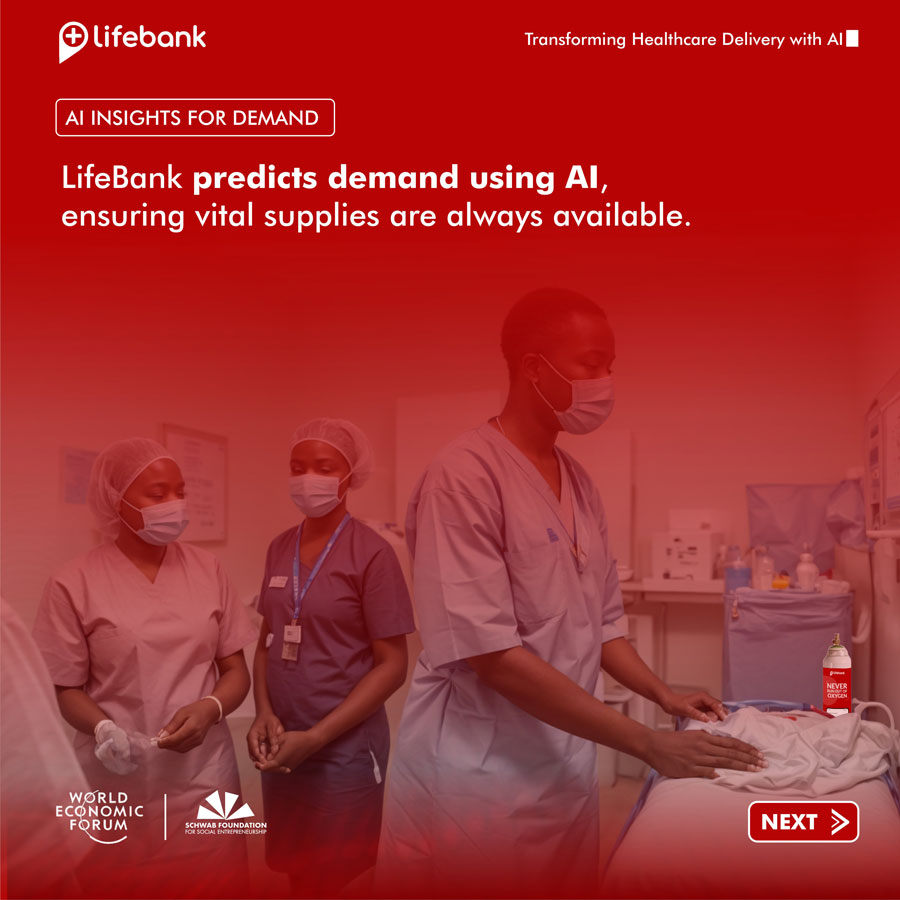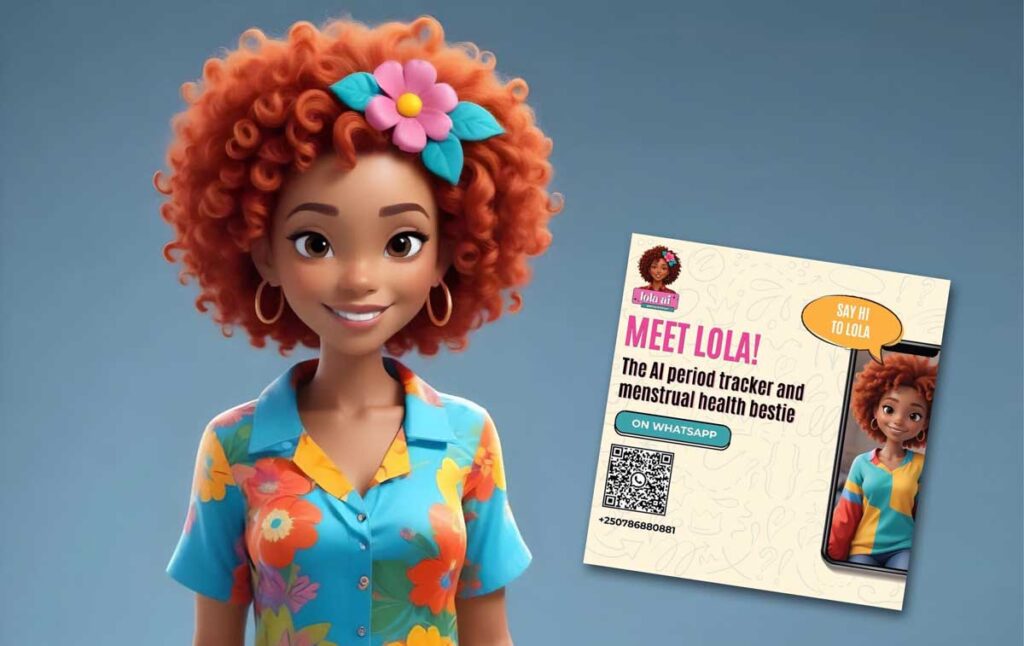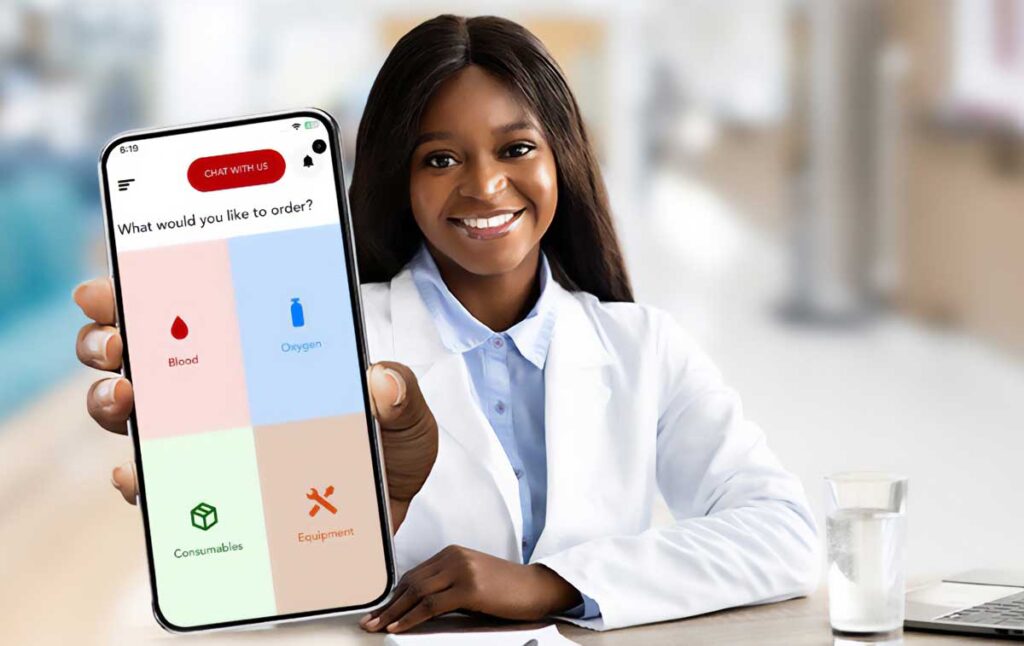In March 2023, the Africa Centres for Disease Control and Prevention (Africa CDC) launched its Digital Transformation Strategy, in which it emphasised the potential of digital health solutions to improve public health outcomes on the continent by enhancing disease surveillance and response, improving healthcare delivery, and supporting sustainable development.
While the document highlighted the potential of digital health solutions to improve health outcomes in Africa, artificial intelligence (AI) is bringing long-term goals into short-term reality. The potential impact AI could have on Africa’s healthcare sectors is already being played out in the rapid growth and expansion of some forward-thinking innovations and start-ups. LifeBank is one of these.
Launched by Temie Giwa-Tubosun in 2016 after she suffered complications while giving birth to her son, LifeBank began with the goal of improving the delivery and efficiency of medical logistics in Africa. The company soon made public its commitment to leveraging AI to make transfusion blood, medical oxygen, and other essential medical commodities it stocks and distributes more easily available. One way it saw AI helping it become more efficient was in predicting demand.
Nowadays, its leaders are not just talking about integrating AI into LifeBank’s operations; they are also amplifying the voice of AI in Africa’s health sector by facilitating Africa-focused AI in healthcare masterclasses. During one such session, Ayo Olufemi, LifeBank’s director of technology and innovation, noted that AI could help Africa’s healthcare sector optimise hospital supply chains, mitigate risks, reduce costs, and enhance patient safety.

“AI in healthcare is not just about innovation; it’s about fundamental transformations. It’s changing how hospitals operate, saving costs, and, most importantly, improving patient outcomes,” Olufemi said.
In late May 2024, in Geneva, Switzerland, a side event at the 77th World Health Assembly focused on how Al can enhance health service delivery at the last mile. Sameer Pujari, lead AI, Department of Digital Health and Innovations at the World Health Organization (WHO) expressed excitement about AI-driven health solutions and ensuring they were ethically implemented.
While noting that African countries, and most of the rest of the world, may not in the short term be prioritising AI use for robotic surgery, he saw the continent benefiting from AI in cases like cervical cancer screening, where AI could reduce costs and improve outcomes.
“Cervical cancer screening has been a massive problem in rural Africa,” he said. “It is one of the most aggressive forms of cancer that can be treated if diagnosed early. Women have to come to different centres for testing, which costs hundreds of dollars. Now, with AI, we have seen cases where an algorithm can do the first triage and reduce those several hundred dollar costs to a few dollars. That’s the impactful AI that we’re looking at from a public health perspective.”
Vivek Natarajan, research lead at Google, argued that the rapid expansion of technology access and usage, and widespread internet connectivity, are putting Africa and the rest of the developing world on the path to being “data rich”. And as more healthcare and other information becomes digitised and available online, from diverse sources and populations worldwide, this will result in the emergence of a rich source of information for training advanced AI models to help people globally.
However, HealthTraka, a Nigerian health tech company founded by its CEO, Ifeoluwa Dare-Johnson, sees this playing out slightly differently for Africa since a significant proportion of the African population is either not using high-end devices to fully access and use the available AI tools, or is reluctant to allow individual apps to occupy the very limited space on their devices.
In April this year, HealthTraka introduced Lola AI, a menstrual tracker that works as a WhatsApp chatbot. “She’s a friendly and informative conversational AI – a supportive friend right on WhatsApp,” Dare-Johnson told Africa in Fact.
Lola helps users monitor their cycles, sets personalised reminders, and helps its users gain insightful information about their menstrual health. She also dispels myths with accurate, up-to-date information, providing a non-judgmental space for questions and emotional support.

“It’s perfect for low-resource communities, acting as a tool for health literacy and information dissemination for women. The potential is huge considering Lola can help with contraception and pregnancy tracking within maternal health systems,” Dare-Johnson said.
Within two weeks of its launch, more than 1,000 women had already used Lola. Dare-Johnson described it as a better option than those available on app marketplaces. “Who can access them? Definitely not women in low-resource communities, not women that don’t have space for another app on their phones because of limited data,” she said.
Within Africa, initiatives are also underway to support and/or localise drug discovery by leveraging AI. Abasi Ene-Obong, the founder of another Nigerian medical start-up, Syndicate Bio, told Africa in Fact that AI would play a role in Syndicate’s work around improving discovery, clinical trial matching and patient segmentation using the diverse genomic dataset the company was building. He said AI had shown an ability to identify the causes of diseases from datasets without additional information, which could enhance genomic (the study of structure, function, mapping and editing of the entire genome of an organism) discovery work.
Meanwhile, PATH, a global collective of medical experts who focus on product development and access and health and disease management, is working on other AI solutions to Africa’s medical challenges. Laurie Werner, the director of PATH’s Center of Digital and Data Excellence, told Africa in Fact that the organisation had, for example, worked on a project using machine learning to predict vaccine stockouts in Tanzania based on historical, population, and meteorological data, which reduced stockouts by 10% and could save over 300,000 lives.
However, Annie Hartley, an assistant professor at the Laboratory for Intelligent Global Health Technologies at Yale University, warned that the “great medical data divide” – a lack of data sharing and the need for decentralised and transparent AI tools in both high-income and low/middle-income countries like those in Africa – posed a significant challenge.
To address these and other AI ethical regulations-linked issues as they affect African countries and elsewhere, where regulations are not catching up with the speed of innovation, Pujari emphasised the need for governance mechanisms to incentivise innovation while protecting well-being and human rights. Hartley, on the other hand, emphasised the importance of ethical frameworks and evaluating models for patient outcomes and safety.
Rachel Adams, the founder and CEO of the Global Centre on AI Governance, which launched the African Observatory on Responsible AI in 2022, said caution should be taken against using AI to solve problems humans can’t, but rather aim for a multifaceted approach. She said that the hype around what AI could do was making stakeholders “slightly blind”, and the key players could be ignoring the key ethical principle of proportionality.
“AI should be used where AI can solve a problem humans can’t,” she told Africa in Fact. Adams said providing frontline workers with the technology to be able to serve 100,000 to 200,000 people did not solve the structural problem, and there was a need to train more doctors and more nurses. “AI is not the solution; it is part of a suite of solutions. And I think we need to remember that,” she concluded.

Paul Adepoju is a Nigeria-based freelance journalist, scientist, academic, and author. He covers science, health, tech and development in Africa for leading local and international media outlets. He’s also the founder of healthnews.ng. He is completing a doctorate in cell biology and genetics and holds several reporting awards.



